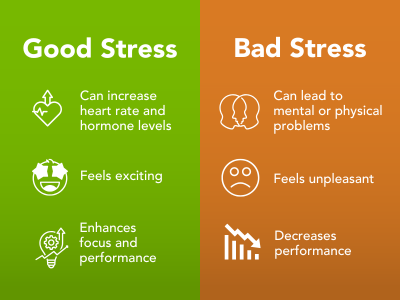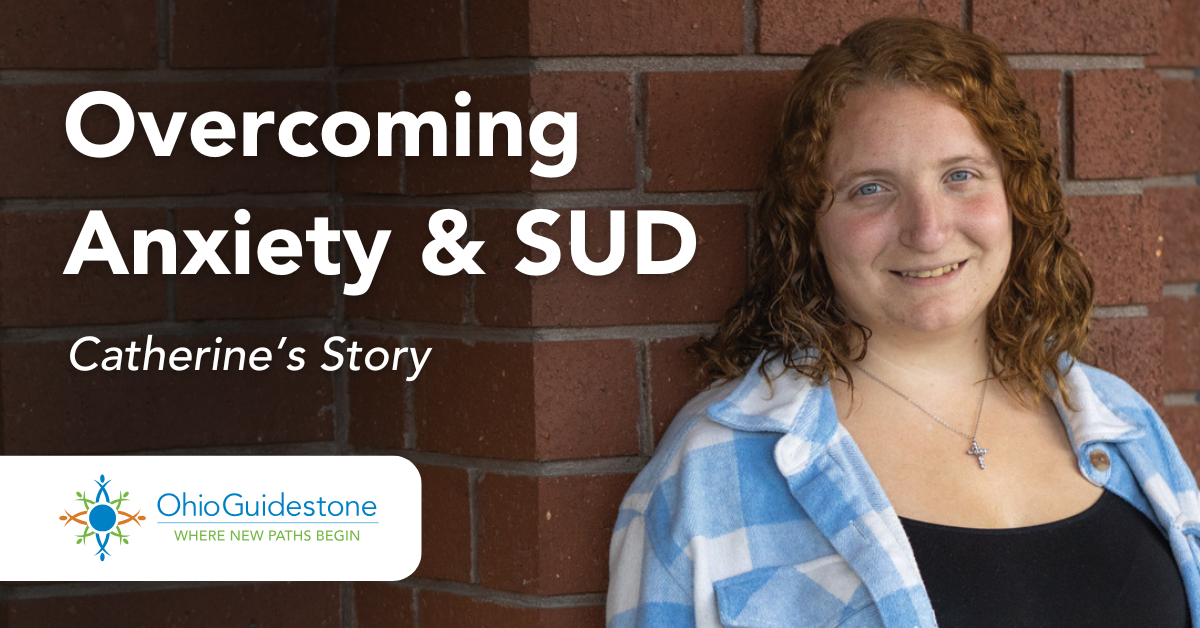7 Effective Ways to Implement Self-Care & Manage Stress
National Stress Awareness Day
National Stress Awareness Day, observed on November 6th, was established in 1998 by the International Stress Management Association (ISMA) to help provide information on stress, and strategies on how to address it for both companies and individuals.
As the state’s leader in community behavioral health, OhioGuidestone wants everyone to know and understand more about how to navigate stress and improve self-care. Over the years, through research like the ACE study (Felitti et al., 1998) of that time and since then, it has become increasingly clear that understanding and combatting stress is vital for a person’s health and wellness, starting with the earliest stages of the life span.
What You’ll Learn
Stress is Not All Bad
It is important to note that not all stress is bad! “Good” stress is necessary for us to function. Stress is working for us when it helps us to get out of bed, take care of ourselves, accomplish tasks, and complete our goals. We are not motivated or able to grow without good stressors! Examples of sources of good stress include:

- Travel
- Meeting basic needs
- New challenges (jobs, projects, school assignments, etc.)
- Physical Activity (exercise and other activities involving the body)
- Meeting new people (first dates, volunteering, hosting, etc.)
- Public speaking (both preparing and delivering the speech)
- Life changes (getting married, moving, graduating, or having a child)
Stress begins to work against us when stressors, even seemingly good ones, become out of balance and unmanageable. Some stressors are obvious and unusual, like traumatic events that make you feel that your life is in danger. Others can be more subtle and impactful over time, like economic hardship, poor nutrition, or lack of a consistent support system.
What Stress Looks Like
Stress creates an imbalance in our endocrine system, and this is essentially why it doesn’t feel good! Depending on your sources of stress (situations, dietary imbalances, etc.), hormones like cortisol, epinephrine, or insulin are released in our bodies to support us through the situation and keep us functioning until we can stabilize at a healthy baseline level.
But if we never return to baseline due to mental illness, high levels of anxiety, or unhealthy habits, our bodies end up relying on these hormones more and more. We are not designed to overuse these hormones, and this begins to wear on our bodies and functioning, making us feel worse and worse with time. Sources of stress are varied and individual to each person, but here are some examples of what stress may look like in ourselves and others:
| In Adults | In Children |
| Irritability | Increased crying or whining |
| Body tension (back, neck, jaw, etc.) | Increased irritability or stubbornness |
| Excessive worry | Clinginess |
| Gastrointestinal issues | Headaches or stomach aches |
| Decreased libido | Lack of confidence in trying new things |
| Appetite and sleep disturbances | Appetite and sleep disturbances |
| Changes to the menstrual cycle | Avoiding activities or contact with others |
| Persistent fatigue | Returning to younger behaviors |
Managing Stress for Self-Care

While these things are okay occasionally, it is important to note that there is a difference between “self-care” and “self-soothing”. Self-soothing can help us manage in the moment when feelings get too big by engaging our senses in pleasant ways, with an emphasis on feeling safe when we do.
It’s easy to imagine how laying down, checking out, eating something sweet, lighting scented candles, or wrapping ourselves in fuzzy blankets would calm us down and make us “feel” better. These activities feel very nice in the short term, but they do little to address or manage stress in the long term.
Self-care is more about setting yourself up for success in a systematic way that is sustainable over time. When self-care is working well you experience less stress from daily activities, and more resilience when larger, or more unexpected stressors occur. It is meant to be done with intention and support, especially when starting something new. Here are seven important points for implementing self-care to help manage stress:
- Routine: Having a consistent and expectable daily/weekly routine decreases stress because you know what to expect. This is especially important for children, as the predictable routine helps them to feel safe. Don’t worry – even if you are the more adventurous type, you can plan time for adventure!
- Sleep: Sleep is a vital mechanism for managing and restoring both our physical and mental health. Our sleep needs may vary by age and situation, but this is important enough to focus on that it is a great first step. If you frequently struggle to fall asleep or stay asleep, consult with a doctor or mental health professional to address this. You can find a chart for recommended amounts of sleep from the Mayo Clinic by clicking here.
- Hygiene: When we love our bodies, they love us back. We feel more stressed when we or our environments feel dirty, and our bodies can sometimes react to that in unexpected ways. It is important to keep our bodies, teeth and hair cared for regularly!
- Exercise: We have bodies that are designed to move! When our lifestyle is sedentary our bodies/muscles atrophy and we don’t feel as good. Physical activity helps keep muscles toned and supportive of our skeletal structure; otherwise, we experience body aches (like back pain) because of unsupported strain. Cellular waste is also disposed of by sweating. We feel better when we move to our body’s ability! If you have concerns about what kind of exercise is appropriate for you, consult your doctor.
- Eat Healthy: Many of America’s most common health problems can be attributed to diet, and specifically to consuming too few unsaturated fats and too much sugar and sodium. Without the right nutrients our bodies will not function optimally, and your body’s efforts to correct for what is missing will cause you to feel less good, increasing stress. One great way to learn more about your relationship with food and how it makes you feel is to track it. You can find a simple template for a food journal here. Remember to include how you felt in your notes!
- Budget: It’s no secret that people often get stuck worrying about money. Living check-to-check is very stressful, especially when we give in to impulses or when other unplanned expenses come up. Having a consistent budget with an additional disaster fund helps us to manage that stress – but only if we stick to it!
- Support: We are not meant to live life alone. It takes a village, as they say, and our brains are wired to connect with others. Isolation, loneliness, or feeling like we are stuck managing through life’s problems without help are all very stressful states for our brains to be in. It is important to have support from people that you can be yourself with, such as family, friends, or mentors.
There are many additional ways to enhance your self-care and manage your stress, but the key to all of it is balance! If you want to check in on what areas of your life might need focus, consider completing this Wellness Wheel activity to determine where to start.
If you find yourself struggling with these or with access to support, consider reaching out to a doctor or mental health professional for help. When we try new things, they are best achieved with specific goals in mind, with accountability, and with support. OhioGuidestone is here to help!






